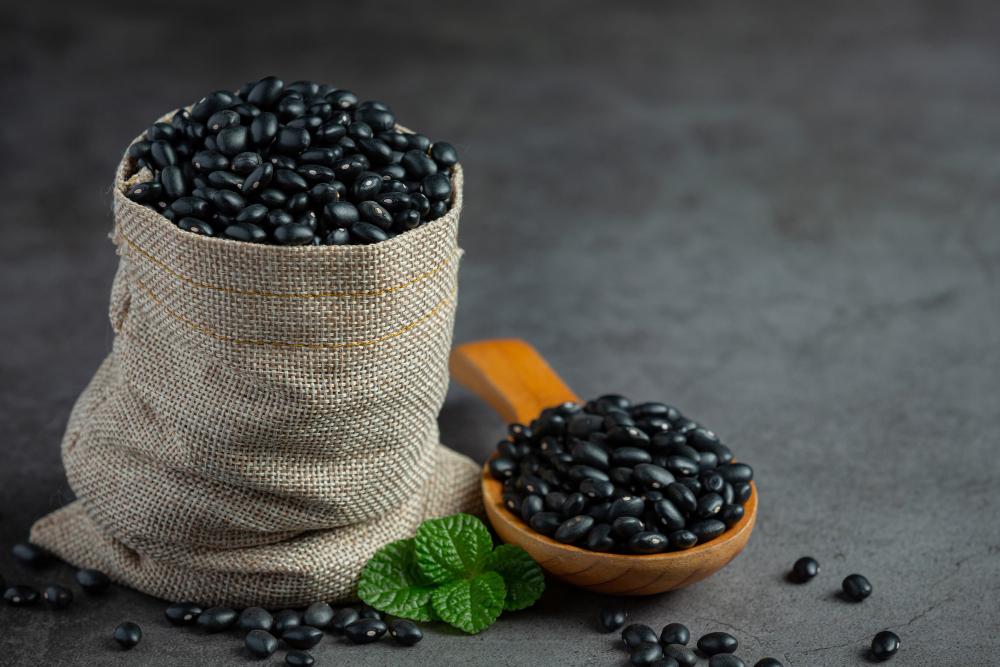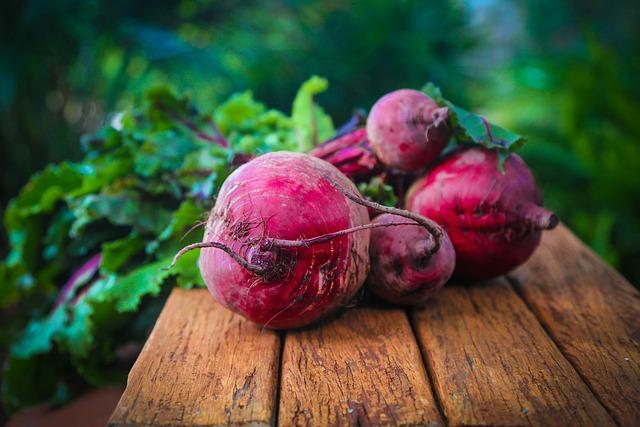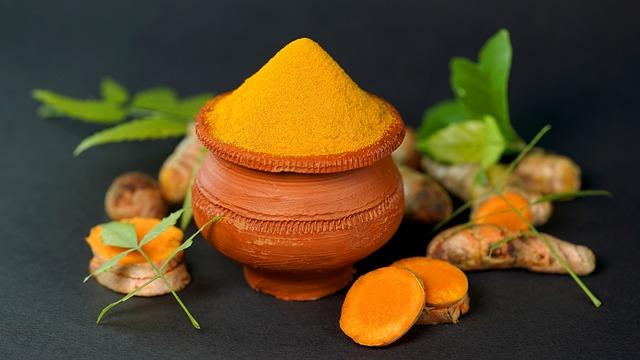No products in the cart.
White pepper powder- Guide to Unlock Tasty Recipes and Health Benefits
White pepper powder is a common ingredient in the kitchen used in cooking and baking. It has a mild, yet distinctive flavor that can be used to enhance the taste of many dishes.
White pepper powder is made from ground-up dried white peppercorns, which are the mature berries of the Piper nigrum plant. White pepper has a delicate flavor that is not as pungent as the black variety, making it an ideal choice for many different recipes. It adds mild heat to dishes and is often used in marinades, pickles, sauces, and other condiments.
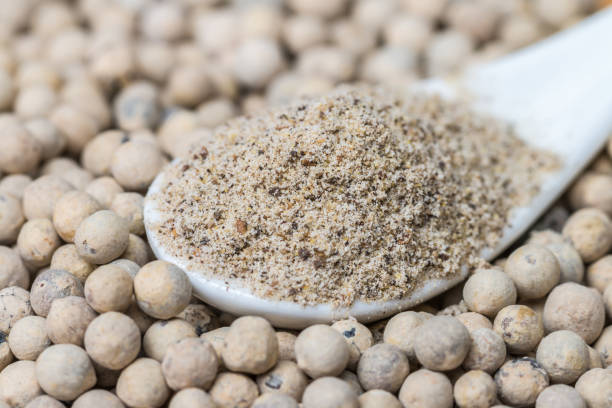
This article will give you a comprehensive guide to using white pepper powder, as well as the many health benefits it provides.
Let’s dive in!
First, let us define what white pepper powder:
What is White Pepper?
White pepper is a type of spice that is derived from the dried and ripe berries of the Piper nigrum plant. The berries are soaked in water for a period of time to remove the outer layer and then dried again to produce the white pepper. Unlike black pepper, which is made from unripe berries, white pepper has a milder flavor with a slightly different taste profile, making it a popular seasoning in various cuisines around the world.
Types of White Pepper Powder
There are two types of white pepper powder available on the market: freshly ground and pre-ground.
Freshly ground white pepper
Freshly ground white pepper is made from whole peppercorns that have been removed from their husks and then finely crushed or processed into a powdery consistency. This type of white pepper has a slightly milder flavor than pre-ground, and is often preferred for its fresher flavor.
Pre-ground white pepper powder
Pre-ground white pepper powder is made from peppercorns that have already been ground, so the flavor is slightly more intense.
Health Benefits of White Pepper.
Antioxidant properties
White pepper contains a high amount of antioxidants, which are compounds that help protect cells from damage caused by free radicals. Free radicals are unstable molecules that can damage cells and contribute to the development of chronic diseases, such as cancer, heart disease, and Alzheimer’s disease.
White pepper contains a compound called piperine, which has been shown to have potent antioxidant properties. In fact, research has shown that piperine can protect cells from oxidative damage caused by free radicals, and may even have anti-cancer effects.
Anti-inflammatory benefits
In addition to its antioxidant properties, white pepper also has anti-inflammatory benefits. Inflammation is a natural response to injury or infection, but chronic inflammation can contribute to the development of various diseases, including heart disease, diabetes, and arthritis.
Research has shown that piperine, the active compound in white pepper, can inhibit the production of pro-inflammatory cytokines, which are proteins that contribute to inflammation in the body. This means that consuming white pepper may help reduce inflammation and the risk of related diseases.
Digestive benefits
White pepper has long been used in traditional medicine to treat digestive issues, such as indigestion, bloating, and gas. Research has shown that piperine can stimulate the production of digestive enzymes, which help break down food and aid in digestion.
In addition, white pepper may also have antimicrobial properties, which means it can help kill harmful bacteria in the gut. This may help improve gut health and reduce the risk of digestive issues.
Anti-cancer potential
Research has suggested that white pepper may have anti-cancer potential. In one study, piperine was shown to inhibit the growth of breast cancer cells in a laboratory setting.
Other studies have suggested that piperine may have anti-cancer effects on other types of cancer cells, including prostate and colon cancer cells.
While more research is needed to fully understand the anti-cancer potential of white pepper, these findings suggest that it may have a role in cancer prevention and treatment.
Other Health Benefits
In addition to the above benefits, white pepper may also have other health benefits, including:
- Improving brain function: Research has shown that piperine may help improve cognitive function and memory, possibly by increasing blood flow to the brain.
- Supporting weight loss: Piperine has been shown to have thermogenic properties, which means it can increase metabolism and help burn fat.
- Promoting skin health: White pepper may have anti-inflammatory and antimicrobial properties, which may help improve skin health and reduce the risk of skin infections.
Culinary Uses for White Pepper
Here are a few ways to incorporate white pepper into your cooking:
Add it to sauces and dressings:
White pepper powder in traditional cuisines
White pepper has been used in traditional cuisines for centuries. It is commonly used in Asian and European cuisines, particularly in dishes that require a spicy or pungent flavor. Some traditional dishes that use white pepper powder include:
- Vietnamese Pho: This popular noodle soup from Vietnam uses white pepper powder as a key ingredient in its broth. The pepper gives the broth a spicy, aromatic flavor that is characteristic of the dish.
- French Bechamel sauce: White pepper powder is often used in French cuisine to season sauces, such as Bechamel sauce. The pepper adds a subtle, spicy flavor to the sauce that pairs well with other savory ingredients.
- Chinese Mapo Tofu: This spicy Sichuan dish uses white pepper powder as a key seasoning. The pepper adds a spicy, numbing flavor to the dish that is characteristic of Sichuan cuisine.
How to use white pepper powder in modern cooking
In addition to its traditional uses, white pepper powder has found a place in modern cooking. It is often used in a variety of dishes, including soups, stews, sauces, and marinades. Some modern uses for white pepper powder include:
- Creamy soups: White pepper powder can be added to creamy soups, such as potato or mushroom soup, to add a subtle, spicy flavor.
- Meat dishes: White pepper powder can be used to season meat dishes, such as roasted chicken or pork chops. It pairs well with other spices, such as garlic and thyme, to create a flavorful seasoning blend.
- Salad dressings: White pepper powder can be added to salad dressings, such as vinaigrettes, to add a subtle, spicy flavor. It pairs well with citrus flavors, such as lemon or lime, to create a bright, tangy dressing.

Recipes that use white pepper powder as a key ingredient
There are many recipes that use white pepper powder as a key ingredient. Here are a few examples:
- Chicken and Vegetable Stir-Fry: This recipe uses white pepper powder to season the chicken and vegetables. The pepper adds a subtle, spicy flavor to the dish that pairs well with the other ingredients.
- Creamy Mushroom Soup: This recipe uses white pepper powder to add a subtle, spicy flavor to the creamy mushroom soup. The pepper pairs well with the earthy flavor of the mushrooms to create a rich, comforting soup.
- Bechamel Sauce: This classic French sauce uses white pepper powder as a key seasoning. The pepper adds a subtle, spicy flavor to the creamy sauce that pairs well with other savory ingredients.
Tips for Selecting High-Quality White Pepper Powder
When selecting white pepper powder, it’s important to choose a high-quality product to ensure that you get the best flavor and aroma. Here are some tips for selecting high-quality white pepper powder:
- Check the color: High-quality white pepper powder should have a bright, creamy white color. If the powder is yellowish or grayish in color, it may be old or of lower quality.
- Smell the powder: White pepper powder should have a strong, pungent aroma. If the powder smells stale or musty, it may be old or of lower quality.
- Look for whole peppercorns: If possible, choose whole white peppercorns and grind them yourself to ensure maximum freshness and flavor.
- Buy from a reputable source: Choose a reputable brand or supplier that sells high-quality spices.
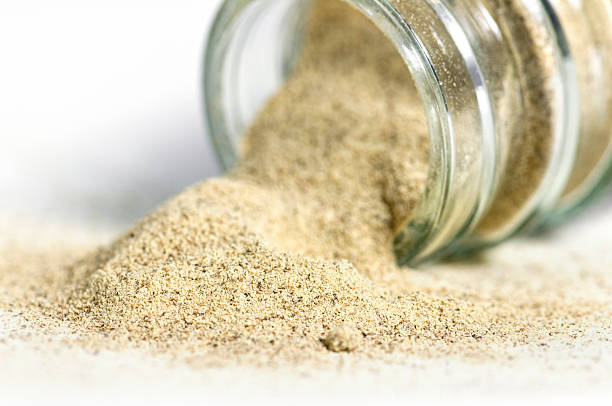
Proper Storage Methods for White Pepper Powder
To maintain the quality of white pepper powder, it’s important to store it properly. Here are some tips for storing white pepper powder:
- Store in an airtight container: White pepper powder should be stored in an airtight container to prevent exposure to air and moisture.
- Keep in a cool, dark place: Store white pepper powder in a cool, dark place away from direct sunlight, heat, and humidity. A pantry or cupboard is a good place to store it.
- Keep away from strong odors: White pepper powder can absorb strong odors, so it’s important to store it away from other strong-smelling spices.
Shelf Life of White Pepper Powder
Like all spices, white pepper powder has a shelf life. Over time, the flavor and aroma of the powder will degrade, so it’s important to use it before it becomes stale. Here are some guidelines for the shelf life of white pepper powder:
- Ground white pepper powder: Ground white pepper powder can last up to two years if stored properly.
- Whole white peppercorns: Whole white peppercorns can last up to five years if stored properly.
It’s important to note that the shelf life of white pepper powder can vary depending on factors such as the quality of the spice and how it is stored. Always use your senses to determine if the powder is still fresh – if it smells musty or has lost its pungency, it may be time to replace it.
Benefits of Using White Pepper Powder in Cooking
White pepper powder has many benefits in cooking.
- It is much less pungent than black pepper and has a milder flavor, making it perfect for dishes that require a light sprinkling of seasoning.
- White pepper can also enhance the taste of marinades, soups, sauces and dips without overpowering the other flavors.
- It is often used in baking to add a bit of flavor and spice to cakes, cookies and other baked goods.
- White pepper is a good source of dietary fiber, vitamins, and minerals such as magnesium, potassium, calcium and iron.
- It contains antioxidants that can help reduce inflammation in the body and can improve digestion by stimulating stomach acid production.
- White pepper has even been said to help prevent cancer and cardiovascular diseases.
How to Use White Pepper Powder in Recipes
White pepper powder is a versatile ingredient that can be used in a variety of recipes. Here is how to use it:
To salads, soups, and sauces: White pepper powder can be added directly to salads, soups and sauces for a mild kick of flavor. Add it to the beginning of cooking for a subtle taste or at the end for more boldness.
With fish and seafood: White pepper powder is great with fish and seafood dishes, such as grilled salmon or shrimp scampi. It adds flavor without overpowering the delicate flavors of these dishes. How? Simply sprinkle it over the top before serving.
To pizzas and pastas: Sprinkle some white pepper powder over your favorite pizza or pasta dish for a subtle, flavorful kick. It pairs wonderfully with rich cheeses and creamy sauces.
As a rub: White pepper powder can also be used to make a delicious savory rub for meats. Simply mix together some white pepper powder with a bit of olive oil and your favorite herbs, then rub it onto the meat before cooking.
In baking: White pepper can also be used in baking to add an extra layer of flavor to cakes, cookies, muffins, and breads. Be sure to start with small amounts and adjust the amount to your preference.
Nutrition Facts of White Pepper Powder
White pepper powder is a great source of nutrients, vitamins and minerals. It is low in calories but packed with healthy benefits. A one-teaspoon serving (5 grams) of white pepper powder contains:
• Calories: 16
• Total fat: 0.3 grams
• Sodium: 1.5 milligrams
• Potassium: 20 milligrams
• Total Carbohydrates: 2.3 grams
• Protein: 0.7 grams
• Vitamin C: 4% of the Daily Value (DV)
• Vitamin K: 1% of the DV
• Calcium: 2% of the DV
• Iron: 4% of the DV.
White pepper powder is also a good source of dietary fiber, magnesium, phosphorus, zinc, and manganese. It contains antioxidants that can help reduce inflammation in the body and can improve digestion by stimulating stomach acid production. White pepper has even been said to help prevent cancer and cardiovascular diseases.
By adding white pepper powder to your diet, you get a boost of flavor without too much-added sodium or calories!
Precautions When Using White Pepper Powder
When using white pepper powder in recipes, starting with small amounts and adjusting the amount according to your preference is important. It can have a strong flavor if too much is used.
White pepper powder should also be stored in an airtight container away from heat and light for maximum freshness. It should not be ingested in large quantities as it can cause stomach discomfort and other digestive issues.
If you are pregnant or breastfeeding, it is best to check with your healthcare provider before consuming white pepper powder as it can interact with certain medications. Additionally, people with allergies to spices such as black and red pepper should avoid white pepper powder.
Bottom Line
White pepper powder is an excellent seasoning that adds flavor without too much-added sodium or calories. It is packed with vitamins, minerals, and antioxidants that can provide numerous health benefits.
Whether you’re looking for a subtle kick or something bold, white pepper powder is an excellent choice to have in your kitchen!
Be sure to use it responsibly and always start with small amounts before adjusting to your preference. With its versatility and delicious flavor, white pepper powder is sure to be a great addition to any dish.
